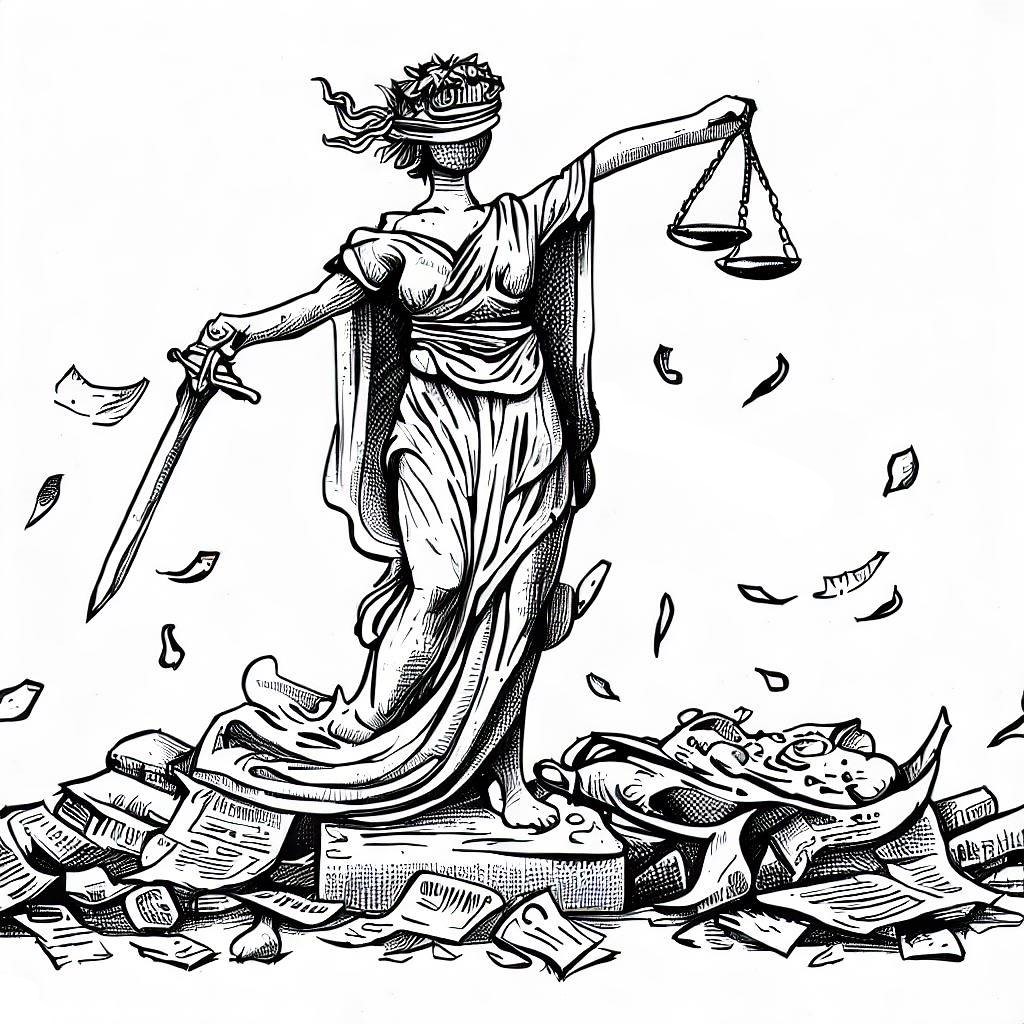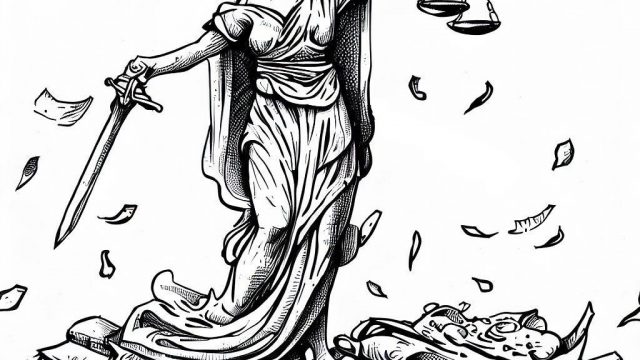Previously I described how being battered by “Alice,” my mentally ill girlfriend, resulted in police arresting me. In this post I will briefly highlight some of the subsequent violations of rights and law committed by the police and prosecutors in that case.
When police entered my house, they ordered me to come out of my office where I had retreated to avoid further battery at the hands of Alice. I complied and was met with two police officers pointing their Glocks at me with their fingers on the triggers. Pointing a firearm at a person constitutes felony assault if not justified. (See the prosecution of the McCloskeys for a recent and famous example.) Were the police justified in assaulting me? The system will never consider that question for several reasons. First: Police officers virtually never stop or hold to account their “brothers in blue” for committing crimes. Second: Even when criminal acts of police are reported, prosecutors virtually never pursue them. Third: This particular assault was not recorded, and here it gets suspicious: Both officers were wearing body cameras. One of them was oriented in such a way that we could see his finger on the trigger, but could not clearly see where his gun was pointed. I believe that the other officer’s body camera did record him pointing his gun at me. However, when we subpoenaed the footage the police claimed that his body camera had failed to record anything until a minute after I was in handcuffs, so that’s all we got.
That’s not the first piece of peculiarly missing recordings. I was taken to the detention area of the local police station. Cameras and signs there prominently declare that everything is recorded at all times. It was there that police read me the Miranda warning, and in response I clearly told the two officers in attendance that I did not want to answer questions while under arrest. One of the officers was wearing a body camera. A few hours later the police questioned me at length. I assumed that, because I had objected to custodial interrogation, my statements could not be used against me if I was charged with any crime. Well, it turns out that all recordings of the detention area from that day were “accidentally” not saved, and the officer who heard me invoke my rights had his body camera audio muted during that period (as is, he claimed, department policy), though after he left the area he was recorded telling another cop who asked about me, “He’s not talking.” I was in fact charged and tried for crimes in this incident, and when I objected to the use of my subsequent interrogation based on having invoked my right, the judge said, “Well, we don’t have a record of you invoking your rights, but what I will do is admonish the police to be more careful in preserving these recordings in the future.”
The prosecutor in the trial also tried to exclude a terrifying audio recording of Alice threatening to kill me and herself. That recording would fall under the category of “potentially exculpatory evidence,” which prosecutors are duty-bound to produce to the defense. (They did not produce it, but I happened to have separately saved the recording, which is how this came to light.) Withholding exculpatory evidence (“Brady material“) is a flagrant violation of the prosecutor’s oath of office, and also a violation of a lawyer’s professional obligations. This was brought to the judge’s attention. Did the judge impose sanctions on the prosecutor for attempting to corrupt due process in his court? No. Was the prosecutor investigated by the bar? No. My lawyer explained to me, “That’s business as usual here.”
There was audio recording of the night in question that Alice had created by (bizarrely) activating and hiding a digital dictaphone in the living room. That device was seized by the police during a warranted search. However, the detective who had analyzed it was retired and unavailable for the trial. Written police reports are not admissible at trial unless authenticated by an officer. My lawyer attempted to get the detective who replaced the retiree to confirm, under oath, what the report said. The detective evaded doing so. My lawyer told me, “I know all of these cops. Some of them are good guys. He is not one of them.”


There’s so much corruption and injustice in the justice system. We speak about “the law” and “our rights,” but without careful, honest prosecutors and judges injustice reigns. Watch the documentary “Take Care of Maya” to see the appalling power of the state to destroy peoples’ lives.
Police perjury is so common there’s a word for it: testilying.
“Alice” sounds completely insane.
She really is, and the more I learn about psychiatric conditions like Borderline and Schizotypal Personality Disorders the more I recognize the patterns in her behavior.